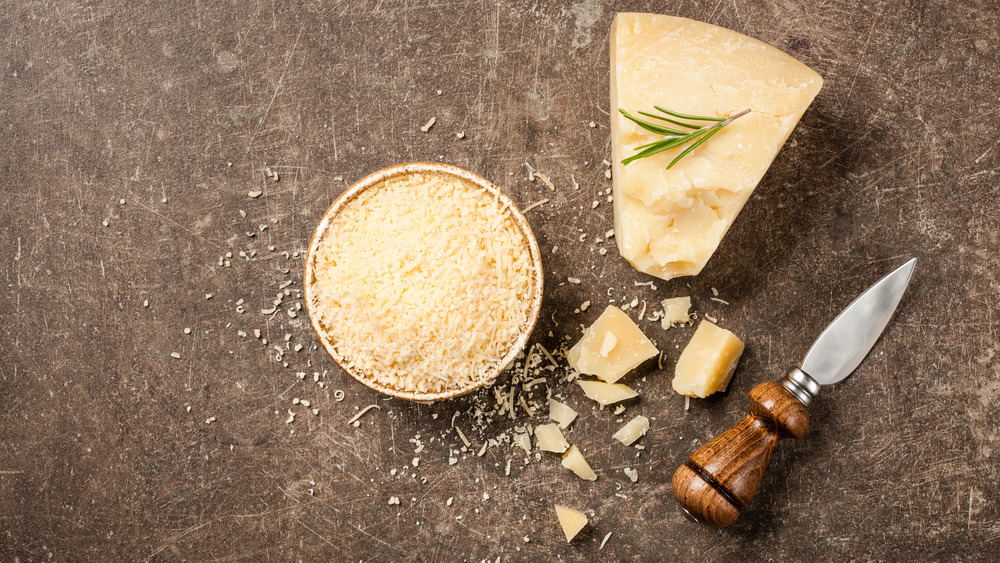Is It Safe To Eat Expired Cheese?
If you've ever attempted a charcuterie board, then you know the struggle that is ridiculous amounts of leftover cheese. While that's hardly a bad thing, it's useful to know exactly how long all that brie, Gouda, and Gruyère will last in your fridge. If you're not sure whether you'll finish it all before the expiration date on the package, then you may be in luck.
To understand whether or not cheese can be consumed after its expiration date has passed, it's important to gauge how they are determined. We've all been there before: You get home, check the date on the milk, and it expires the next day. That's annoying, yes, but it's actually permissible according to the US Food and Drug Administration. The FDA upholds standards for different types of food codes, but it's ultimately a system geared towards retailers and manufacturers. The most important clarification? "Best If Used By" has nothing to do with safety. Instead, it suggests the ideal date to consume a product for top quality, according to the organization. Not many people realize that this suggestion applies to tons of different foods, which leads to $161 billion of waste each year, says the FDA.
Hard cheeses are typically safe to eat after their expiration date
The Gourmet Cheese Detective states that the best way to assess your cheese post-expiration is by weighing three factors in this order: sight, smell, then taste. Chances are, you'll know if a cheese is bad based on one of the first two properties. However, the outlet states that if you taste cheese that is past its "Best By" date and it's sour or stings your mouth, it's likely bad — yes, even if it looks fine. Spit it out, toss it in the trash, and go grab yourself something fresh instead.
When it comes to hard block cheeses such as Parmesan, the expiration date is more of a suggestion than a steadfast concern. Michelle Dudash, RDN, of the Academy of Nutrition and Dietetics, told Eat Right that if a new mold grows on a drier cheese, it's a safe bet to just trim away the spoiled portion and enjoy the cheese. Cut about an inch or so extra off of the perimeter, too, just to be safe.
Throw away soft cheeses after their expiration date passes
Soft cheeses are much more high maintenance than hard cheeses. While you can easily freeze hard cheeses for up to eight months to preserve them, softer ones like mozzarella tend to lose their texture and are better enjoyed while fresh.
When it comes to expired soft cheeses, it's smarter to take the cautious route. Popular cheese brand Tillamook says that its naturally-aged cheddar will continue to sharpen past its date and is safe to consume. The brand also notes that its stirred curd cheeses don't age well and should be tossed once their code date passes.
While you may get up to a month out of an old block of cheddar, moist cheeses like brie, cream cheese, and ricotta will only last one or two weeks in the fridge (via the Academy of Nutrition and Dietetics). Beyond that, you should cut your cheese losses and free up some space in the fridge. But, let's be honest — who would ever turn down an excuse to buy more cheese?


